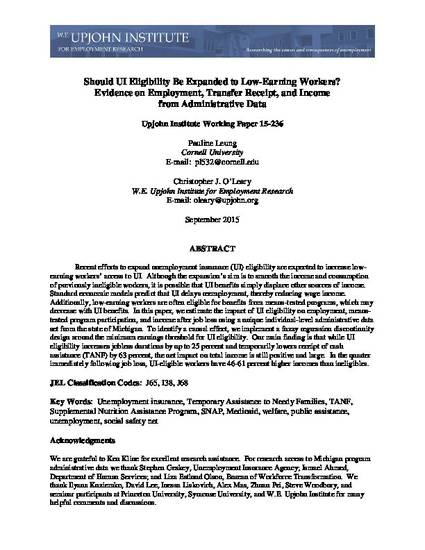
Recent efforts to expand unemployment insurance (UI) eligibility are expected to increase low-earning workers’ access to UI. Although the expansion’s aim is to smooth the income and consumption of previously ineligible workers, it is possible that UI benefits simply displace other sources of income. Standard economic models predict that UI delays reemployment, thereby reducing wage income. Additionally, low-earning workers are often eligible for benefits from means-tested programs, which may decrease with UI benefits. In this paper, we estimate the impact of UI eligibility on employment, means-tested program participation, and income after job loss using a unique individual-level administrative data set from the state of Michigan. To identify a causal effect, we implement a fuzzy regression discontinuity design around the minimum earnings threshold for UI eligibility. Our main finding is that while UI eligibility increases jobless durations by up to 25 percent and temporarily lowers receipt of cash assistance (TANF) by 63 percent, the net impact on total income is still positive and large. In the quarter immediately following job loss, UI-eligible workers have 46-61 percent higher incomes than ineligibles.
